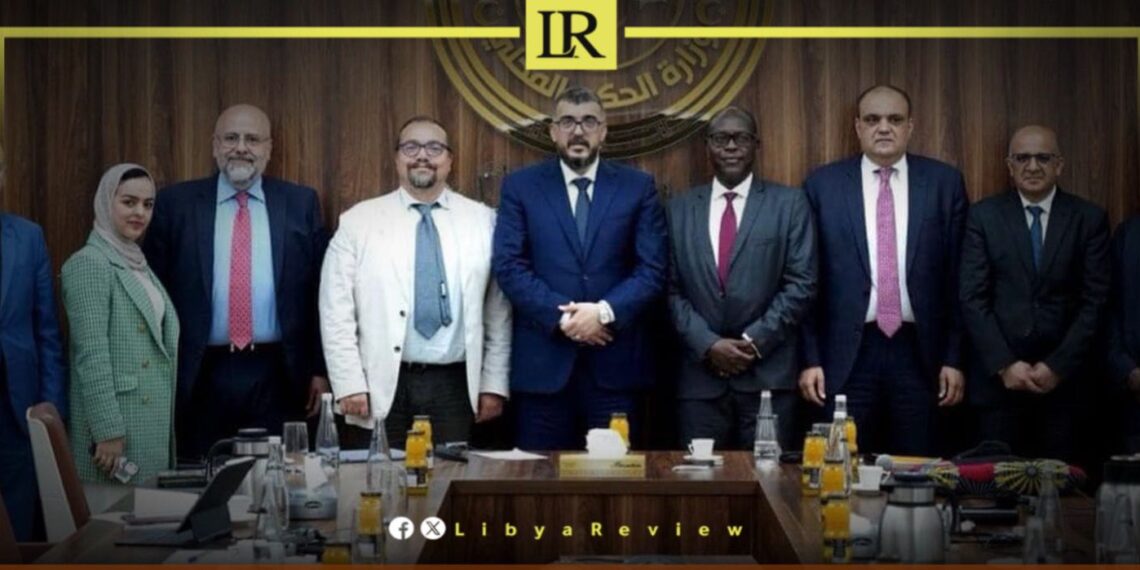The Government of National Unity (GNU) in Libya held a meeting with representatives from the United Nations Development Programme (UNDP) to discuss strategies for economic diversification, enhancement of the private sector, entrepreneurship, and the development of small and medium-sized enterprises based on value chains.
The session was conducted by the Minister of Local Governance, Badr al-Din al-Toumi, along with the UNDP’s Resident Representative, Christopher Lueker, his deputy Adel Mansour, and a team comprising inclusive growth specialists and economists.
According to the media office of the Government of National Unity, the meeting explored a variety of economic issues, particularly those related to the Sustainable Development Goals (SDGs) and the role of municipalities in achieving these goals through their ability to design and implement strategies. Discussions also covered the contributions of the Supreme Committee for Sustainable Local Development, which includes members from all Libyan municipalities.
The gathering also preliminarily settled on cooperation and support in areas that would foster the transition towards decentralization, digitalization of processes, and the creation of real job opportunities. These measures are expected to boost the private sector’s contribution to the Gross Domestic Product (GDP).
This dialogue underscores the commitment of Libya’s transitional government and international partners to foster economic growth and stability through local governance and strategic collaborations, focusing on empowering municipalities and leveraging private sector capabilities.
Last month, the United Nations Development Programme (UNDP) in Libya announced its commitment to fostering a more sustainable and environmentally friendly economy in Libya.
This initiative involves strategic partnerships with the Libyan-Korean Center and various local stakeholders, aiming to develop a skilled workforce dedicated to eco-friendly economic practices.
In a recent announcement shared on the “X,” platform, the UNDP detailed its leadership in implementing five key training programs. These initiatives are designed to cultivate essential skills among Libyan workers, equipping them to support a greener economy. “Through close collaboration with the Libyan-Korean Center and local stakeholders, UNDP has taken a leading role in five significant training programs. These are aimed at creating a skilled workforce that can sustain a greener economy in Libya,” the statement explained.
These educational and training efforts have been established in cooperation with Libya’s Ministry of Labor and Rehabilitation under the Government of National Unity. Crucially, these programs have been supported by generous funding from the Republic of Korea, emphasizing the global support for Libya’s transition towards sustainable economic practices.
The focus on developing a greener economy in Libya is timely as the nation seeks alternatives to its traditional reliance on oil revenues. This shift is not only expected to reduce Libya’s environmental footprint but also to open up new job opportunities in sustainable industries, thereby diversifying the economy and enhancing resilience.
This initiative is particularly significant against the backdrop of Libya’s long-standing challenges with conflict and instability, which have impeded economic growth and environmental management. By prioritizing sustainable development, the UNDP, along with its international and local partners, is helping to pave the way for a more stable and prosperous Libya.


